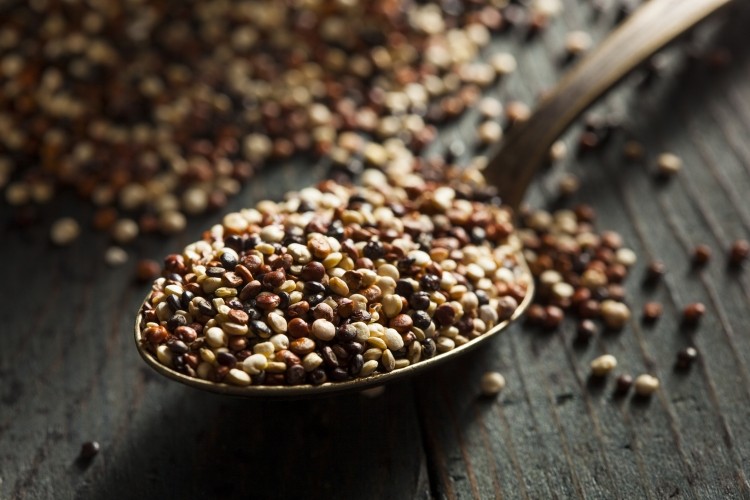Quinoa compounds may boost ‘healthspan’ and slow aging: Study

The nematode worm Caenorhabditis elegans or C. elegans is often used in studies related to aging because the worms are transparent, making cellular activity easier to view, and they have a short lifespan. But most importantly, they are a simple organism with specific types of metabolic genes that are similar to mammals.
Researchers from Rutgers University and the NC State University Plants for Human Health Institute (PHHI) at the NC Research Campus focused on specific phytochemicals in quinoa called phytoecdysteroids, and 20-Hydroxyecdysone (20HE), which is the primary phytoecdysteroid in the quinoa seed preparation used in the study.
Feeding nematode worms with the phytoecdysteroid-enriched quinoa seed preparation, which they called quinoa leachate or QL, increased the median lifespan of the organisms from 9 to 11 days, and also improved locomotory performance.
AGE, ROS & body fat
The researchers also observed significant reductions in levels of advanced glycation end products (AGE) pigments, which accumulate during aging and are reported to contribute to increased oxidant stress and inflammation, and lower levels of body fat and reactive oxygen species (ROS).
“Using the C. elegans model, we provided the first in vivo evidence that treatment with a 20HE-enriched quinoa preparation enhances lifespan, locomotory performance, and mitochondrial metabolism, while decreasing AGE pigment and ROS accumulation,” they wrote in the Journal of Functional Foods.
“20HE, delivered at doses relevant to those found in the complex phytochemical preparation termed quinoa leachate (QL), exerted statistically similar AGE pigment and ROS-lowering effects compared to QL, suggesting that 20HE is the primary bioactive constituent of QL.
“Our findings corroborate reports from mammalian studies that 20HE treatment reduces lipid accumulation in animals. Collectively, these results suggest that supplementation with 20HE-containing quinoa preparations may promote metabolic health in C. elegans through a conserved mechanism that may be extrapolated to humans.”
Study details
Quinoa was one of the first superfoods to take America by storm more than a decade ago, and one of the few such stars to sustain its reign long enough to push past being a fad food to become a staple on restaurant menus and households across the country. It is a complete source of protein, containing all nine essential amino acids.
The researchers measured the “healthspan” of C. elegans by monitoring lifespan, movement, AGE pigments, and reactive oxygen species (ROS) in response to feeding with quinoa leachate.
“Leachate is the liquid that passes through the substance and absorbs soluble components from it,” explained study co-author Slavko Komarnytsky, PhD, associate professor of Pharmacogenomics and Director of the Mobile Discovery program at PHHI. “The use of leachate of quinoa seeds as a vehicle for extraction and concentration of its bioactive properties is an original idea of my collaborators at Rutgers University.”
The experiments showed – for the first time – that quinoa consumption slowed C. elegans aging and improves the organism’s metabolic health by improving factors like lifespan and locomotory performance and decreasing negative factors such as AGE pigment (by 24%), ROS (by 20%), and lipid accumulation (by 14%) as a direct result of quinoa supplementation.
“Because C. elegans genes share sequence homology with many mammalian genes involved in key metabolic pathways, these results may be applicable to higher organisms,” wrote the researchers. “Therefore, our data suggest that dietary supplementation with quinoa may improve various aspects of health and wellness among aging populations.”
Source: Journal of Functional Foods
October 2017, Volume 37, Pages 1-7, doi: 10.1016/j.jff.2017.07.016
“Phytoecdysteroid-enriched quinoa seed leachate enhances healthspan and mitochondrial metabolism in Caenorhabditis elegans”
Authors: B.L. Graf, et al.











